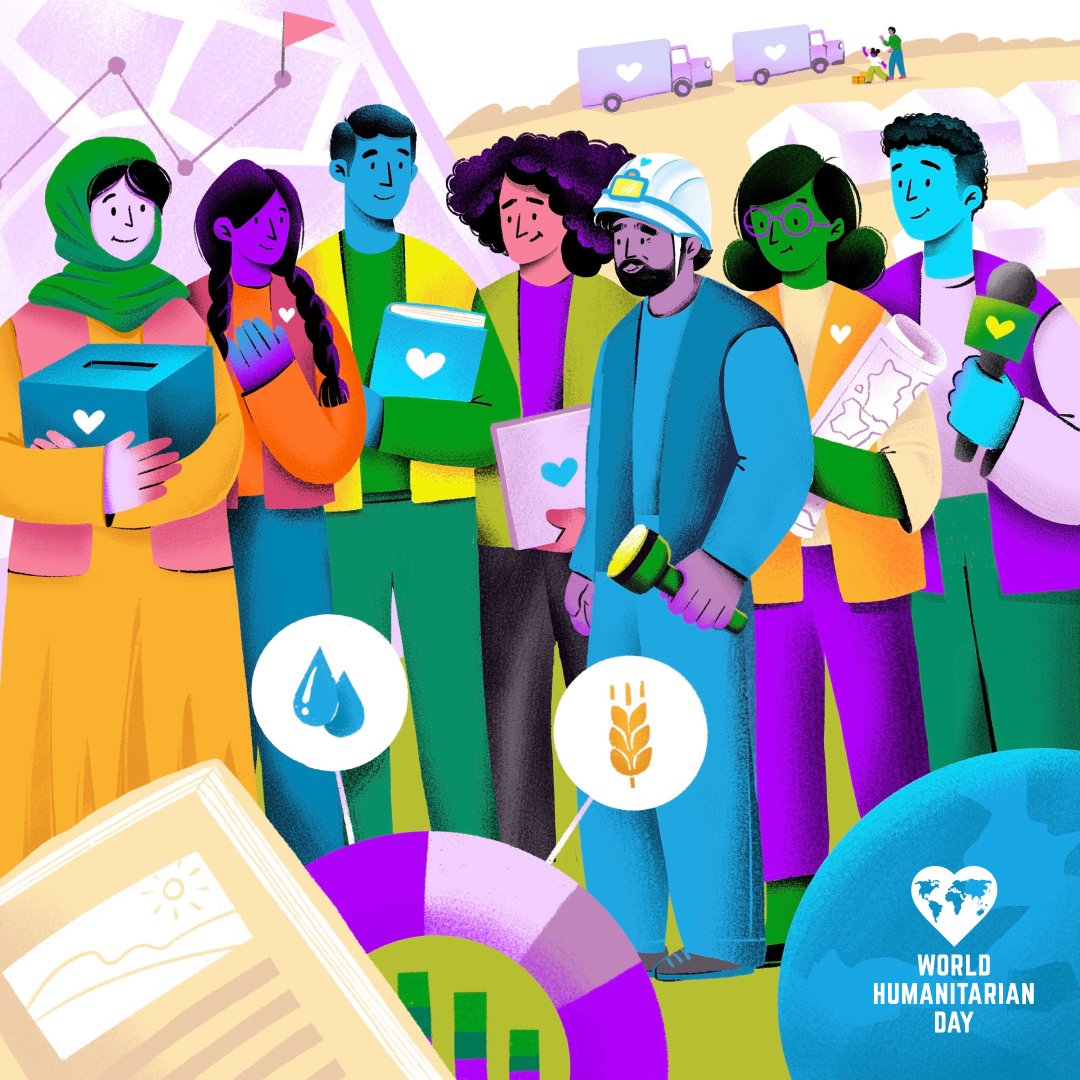
By Carol Glatz
VATICAN CITY (CNS) — Marking the day dedicated to the world’s humanitarian workers, Caritas Internationalis thanked its confederation’s “local heroes” for their compassion and dedicated service in 200 countries and territories.
“Caritas staff are always there, everywhere in the world, at every moment: before, during, and after the crises,” said Aloysius John, secretary-general of the Vatican-based umbrella organization for national Catholic charities.
“They are both alongside and part of the communities, providing not only humanitarian relief, but also working for sustainable development, peacebuilding and social cohesion. They offer their services and even their lives for the cause of the human person,” he said in a media statement released Aug. 18.
Caritas Internationalis was marking World Humanitarian Day, Aug. 19, with the campaign, “Our Local Heroes,” as a way to thank Caritas staff “for their service, for their professionalism and effectiveness, for their heart, for their compassion, for their solidarity, for the hope they bring,” and to call for needed action, it said on a dedicated page of its website, caritas.org.
Caritas Internationalis “is witnessing a global and unprecedented food crisis which is particularly severe in the Horn of Africa and Sahel regions, where millions of people are affected by acute food insecurity and malnutrition,” it said in its media release. If needed measures are not taken now, “the global humanitarian situation is likely to continue to worsen.”
The United Nations predicts that 274 million people will be in urgent need of humanitarian assistance and protection this year, marking the highest figure in decades, according to its Office for the Coordination of Humanitarian Affairs, OCHA.
About 98 million people of those in need — close to a third of the total — are in Congo, Ethiopia, Afghanistan and Yemen, the office said in its “Global Humanitarian Overview” for 2022.
It said humanitarian workers will have to adapt to new and continuing challenges, such as the COVID-19 pandemic, conflict, extreme poverty and the effects of climate change, which has been leading to record levels of forced displacement and acute food insecurity.
Caritas’ John said, “our world is facing a human tragedy wherein people are losing their right to live as dignified human beings.”
“We echo and support Pope Francis’ incessant cry to support integral ecology as a solution to the humanitarian crisis our world is facing. This is the only way out of this crisis,” he added.
On the occasion of World Humanitarian Day, Caritas Internationalis also was asking leaders to “listen to the voices of the poorest and put their aspirations for a dignified life at the center of all political decisions. In particular, sustainable actions to mitigate the negative impact of climate change” and work to promote peace and reconciliation must be supported.
The world day marks the date in 2003 when a bomb attack on the Canal Hotel in Baghdad killed 22 humanitarian aid workers, including Sergio Vieira de Mello, the U.N. special representative of the secretary-general for Iraq.
The day seeks to raise awareness and “advocate for the survival, well-being and dignity of people affected by crises, and for the safety and security of aid workers,” said the un.org website.
